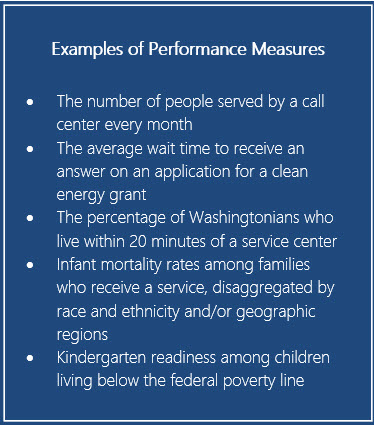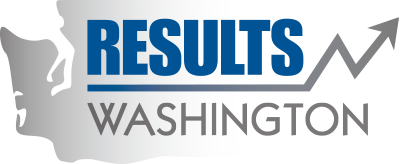What is a performance measure?
A performance measure is data from any source that answers questions about:
- How much we are doing
- How well we are doing
- If anyone is better off
It includes any data measuring the:
- Quantity of work
- Quality of work
- Results for those we’re serving directly
- Progress on implementing changes
- Indicators of conditions in the populations we serve
What makes a performance measure meaningful isn’t the type of data, but how it’s used. Performance measures are used to answer questions about our progress to inform what is needed going forward. They can help us identify barriers in a specific process or the root causes of a complex problem. Many of these barriers and problems lead to disparities, so performance measurement is a powerful tool in working towards equity.
For example, a well-rounded data set for a fictional child welfare program could look like:
- The number of children served (helps inform how much we are doing)
- The workload ratio of children to workers (helps inform how well we are doing)
- The percentage of cases without repeat abuse/neglect (helps inform whether anyone is better off)
- The overall rate of child abuse/neglect (provides an indicator)
The quality of your data is also important when developing performance measures. High-quality data ensures we have reliable information to assess how we’re doing and inform decision-making and next steps. However, we know that not all data will be perfect but being clear on what the data represents is important.
It is critical to understand that performance measurement is not about incentives or punishment, but about learning and continuous improvement. In general, outcomes are often difficult to measure in the short term and can include measures we have the least amount of control over, but insights from performance measures can help governments and their partners improve target outcomes over time. Basing incentives on measures that are proxies or intermediate steps risks focusing on the wrong actions. The challenge is to keep our focus on results, and we use measurement as one tool to help us understand and to continually check and adjust how to reach them.


 previous
previous